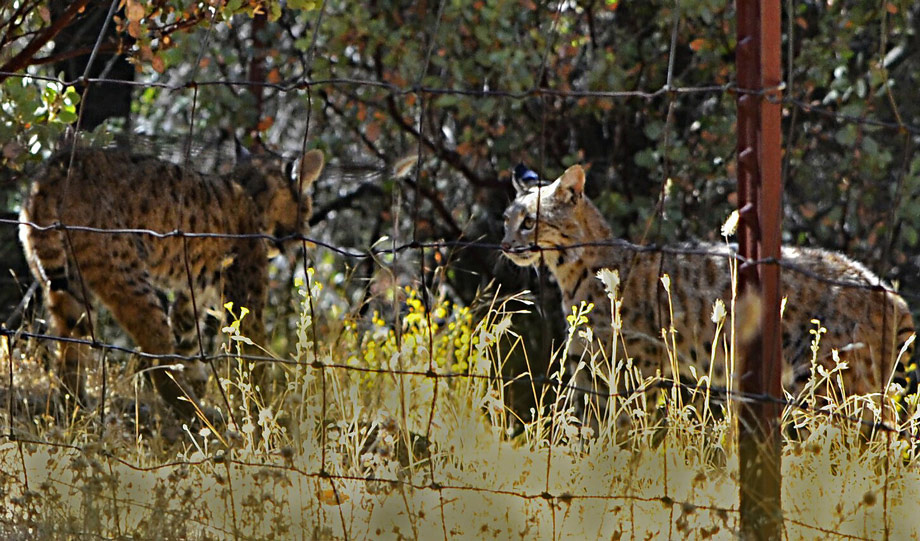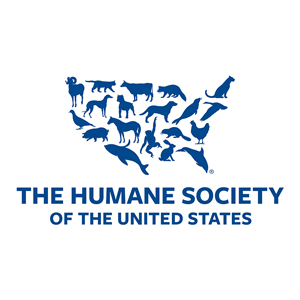 A Bobcat Fight in Mariposa County
A Bobcat Fight in Mariposa County
Photo Credit: Jeannine Andre/Sierra Sun Times file photo
Poll results released as legislation to end the practice advances in the California Assembly
April 13, 2019 - SACRAMENTO, Calif. - A new statewide survey reveals a supermajority of California voters across all party lines oppose the trophy hunting of bobcats and want to see the practice  stopped. The survey found that nearly 70% of voters statewide are outright opposed to bobcat trophy hunting, demonstrating broad bipartisan opposition including 77% of Democratic voters, 62% of Republican voters and 63% of non-partisan voters opposing the practice.
stopped. The survey found that nearly 70% of voters statewide are outright opposed to bobcat trophy hunting, demonstrating broad bipartisan opposition including 77% of Democratic voters, 62% of Republican voters and 63% of non-partisan voters opposing the practice.
The survey also had the following findings: 74% of voters would value spotting a bobcat in the wild and 65% do not think bobcat hunting is of economic importance to the California Department of Fish and Wildlife.
Over the past 10 years, nearly 10,000 bobcats have been killed in California. A small number of trophy hunters are responsible for killing most of the hunted bobcats in California. The California legislature is currently considering legislation, Assembly Bill 1254, that would place a temporary moratorium on trophy hunting of bobcats and require the Department of Fish and Wildlife and the Fish and Game Commission to meet certain requirements before reinstating a trophy hunt. By a vote of nine to four, with one abstention vote, AB 1254 passed out of the Assembly Water, Parks and Wildlife Committee on April 9. The survey also showed that 67% of voters statewide support this moratorium.
Crystal Moreland, California state director for the Humane Society of the United States, said: “These results demonstrate the strong opposition that Californians hold toward trophy hunting these small wildcats. It is clear that our voters want to see this practice stopped altogether, but at the very least they want the California Fish and Game Commission to demonstrate the justifications for a trophy-hunting season before any more bobcats are needlessly killed for a trophy or a trophy hunter’s portrait with their dead quarry. We urge the California Assembly to heed the wishes of their constituents and pass AB 1254.”
The poll of likely 2020 general election California voters was conducted by Remington Research Group from April 3 to April 5, 2019. The margin of error is plus or minus 3%.
Background
Californians banned mountain lion trophy hunting five decades ago—it’s time to close the loop for bobcats.
On March 1, 1972, the California legislature passed, and then-Gov. Ronald Reagan approved, a statewide moratorium on trophy hunting of mountain lions. Then in 1990, California voters approved Proposition 117, the California Wildlife Protection Act, which established a permanent prohibition on the trophy hunting of mountain lions.
The time is ripe for legislation to extend this protection to bobcats. It’s the final step toward closing the circle on bobcat protection that started in 1998 with the passage of Proposition 4 banning body-gripping traps, and continued in 2012 with a ban on hound hunting of bobcats. In 2015, California enacted a complete ban on recreational and commercial trapping of bobcats.
The hunting of bobcats generates nominal income for the Department of Fish and Wildlife.
Bobcat hunters much purchase a tag to kill a bobcat. These tags cost $3.24 each, barely contributing to the revenue for the Department of Fish and Wildlife. The revenue collected each year is less than the salary of a single game warden. Californians who do not kill bobcats shouldn’t be footing the bill to enable this cruel treatment against such highly sentient wild animals.
Bobcats are beneficial to farmers, human health and habitats.
Bobcats are obligate carnivores—just like house cats—meaning they require an all-meat diet. They primarily prey upon rodents, rabbits and invasive nutria. Keeping a balanced ecosystem helps local communities and farmers and protects wetland habitats.
Source: The Humane Society of the United States
Related: Humane Society of the United States Reports Bill to Ban the Trophy Hunting of Bobcats in California Introduced








